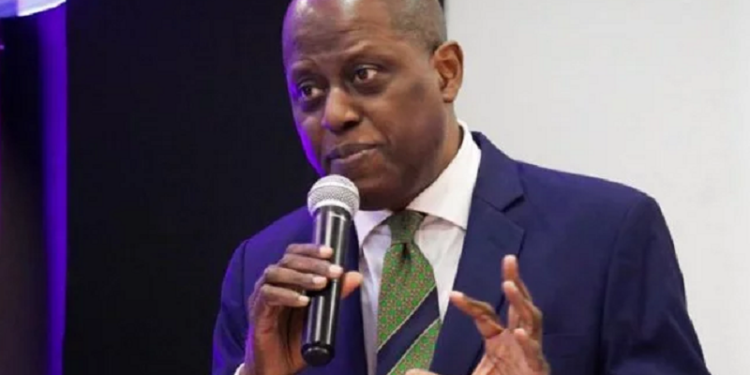The Central Bank of Nigeria has said it can no longer advance loans to the federal government through the Ways and Means as Section 38 of the CBN Act (2007) bars it from doing so until previous advances have been paid.
CBN governor, Olayemi Cardoso, made the clarification on Friday while addressing members of the Senate committees on Finance, Appropriation, Banking, Insurance and Other Financial Institutions.
The minster of finance, Wale Edun, his counterparts in budget and national planning, and agriculture, Atiku Bagudu and Abubakar Kyari, were present at the meeting with the senators.
Speaking on what led to the present crisis, Cardoso said; “Increase in Net Foreign Asset following the harmonisation of exchange rates and the N3.22tn Ways and Means advances were the major factors driving the increase in money supply.”
He said; “I am pleased to note the fiscal authorities’ efforts in discontinuing Ways and Means advances. This is also in compliance with Section (38) of the CBN Act (2007), the bank is no longer at liberty to grant further Ways and Means advances to the federal government until the outstanding balance as of December 31, 2023 is fully settled.
“The bank must strictly adhere to the law limiting advances under Ways and Means to five percent of the previous year’s revenue. We have also halted quasi-fiscal measures of over N10tn by the Central Bank of Nigeria under the guise of development finance interventions which hitherto contributed to flooding excess naira and raising prices to the level of inflation we are grappling with today.”
The CBN’s adoption of the inflation-targeting framework, he said, involves clear communication and collaboration with fiscal authorities to achieve price stability, potentially leading to lowered policy rates, stimulating investment and creating job opportunities.
He said; “Our MPC meeting on the 26th and 27th of February is also expected to review the situation and take further decisions on these important issues. Empirical analysis has established that money supply is one of the factors fueling the current inflationary pressure.
“For instance, an analysis of the trend of money supply spanning over nine months shows that M3 increased from N52.01tn in January 2023 to N68.25tn in November 2023, representing N16.24tn or 31.22 percent increase over the period.”
The CBN governor added; “Inflationary pressures are expected to decline in 2024 due to the CBN’s inflation-targeting policy, aiming to rein in inflation to 21.4 percent in the medium term, aided by improved agricultural productivity and easing global supply chain pressures.”



